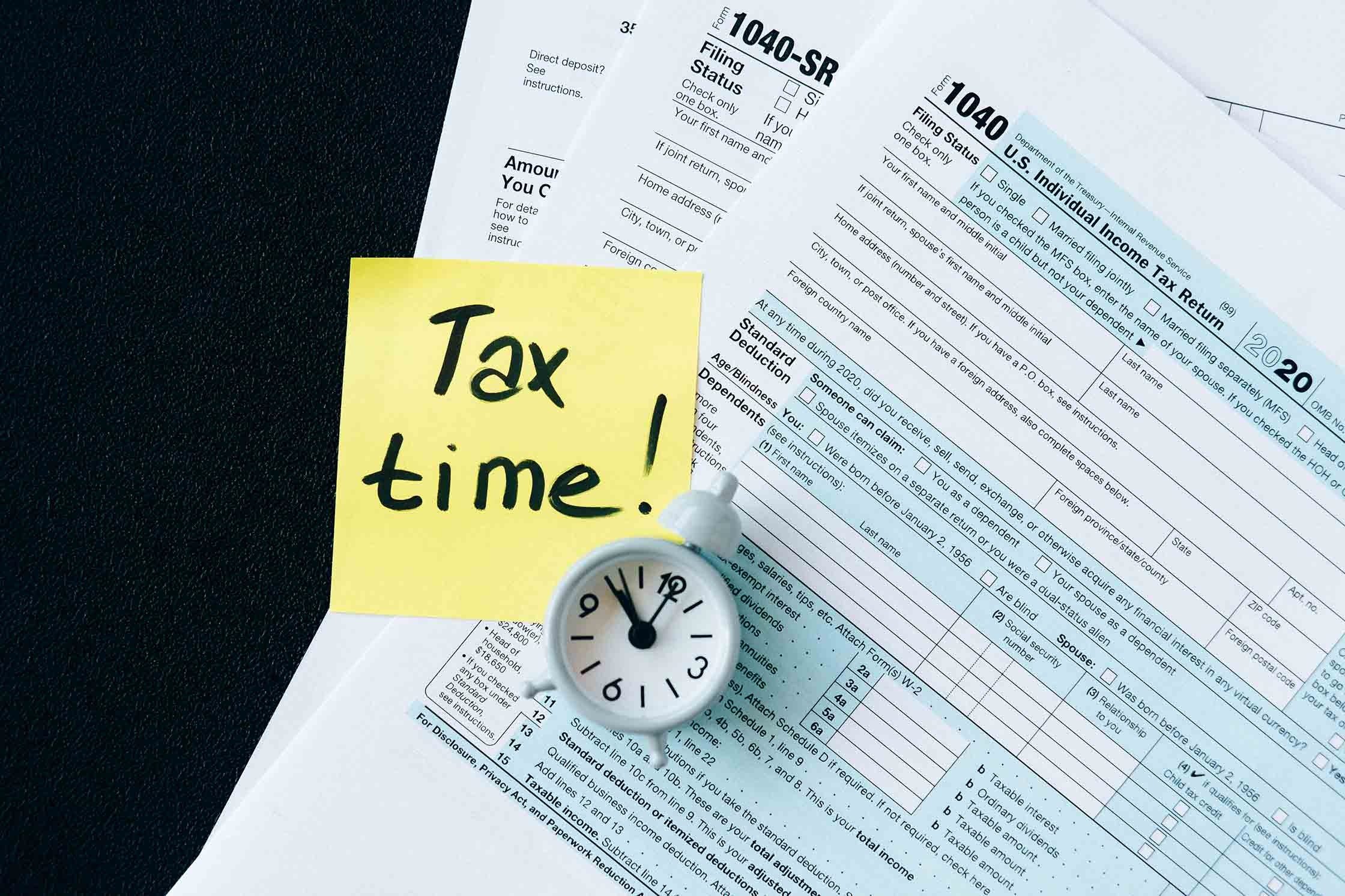Minimise Your Business Tax: A Guide to Business Tax Planning
Understanding Business Tax Planning
What is Business Tax Planning?
Business tax planning is all about looking ahead and making informed decisions to minimise your tax liability while complying with Australian tax laws. It involves evaluating your financial situation with an aim to optimise your tax outcomes. Key activities include choosing the right business structure, maximising deductions, and timing your income and expenses. In essence, it’s about being proactive with the numbers so you can focus more on running your business and less on stressing over taxes.
Why is Tax Planning Important for Ipswich Businesses?
For businesses in Ipswich, effective tax planning can be the difference between operating smoothly and having a stressful financial year. Ipswich, with its unique blend of industries from agriculture to emerging tech hubs, offers both opportunities and challenges when it comes to taxes. Good planning helps you take advantage of local and federal incentives, like the instant asset write-off or fuel tax credits, specifically beneficial to many Ipswich businesses. It not only helps reduce the financial burden but also ensures compliance with ever-changing tax regulations. When you're prepared, you can avoid unexpected debts and penalties, ensuring that your cash flow remains healthy throughout the year.
Key Tax Planning Strategies for Australian Businesses
Tax planning is essential for any business aiming to maximise efficiency and minimise liabilities. For businesses in Ipswich and across Australia, having well-thought-out tax strategies can prove crucial, especially in navigating legislative changes and economic fluctuations. Let's explore some effective strategies to ensure your business remains tax-efficient and robust.
Deferring Income to Manage Tax Liabilities
Deferring income can be a smart way to manage your tax liabilities, especially if you anticipate being in a lower tax bracket next year. By postponing the receipt of income until the next financial year, you may reduce your taxable income for the current year. For example, if you're expecting a significant invoice payment in late June, consider rescheduling it for early July. This simple change can alleviate immediate tax pressure and help you plan business expansion or investment strategies more effectively. However, it's vital to consult with your accountant to ensure this aligns with your long-term financial goals and does not breach regulations.
Accelerating Deductions: How and Why
Accelerating deductions allows you to bring forward expenses into the current financial year to lower your taxable income. This strategy is particularly beneficial if you anticipate higher income next year. Consider prepaying expenses like rent, utilities, or even staff training costs before the financial year ends. Not only does this reduce your current year's tax, but it also optimises cash flow management across unpredictable business cycles. Keep in mind that this strategy should be balanced against cash availability and business needs. An Ipswich accountant can provide local insights and ensure you comply with Australian tax laws.
Utilising Tax Offsets and Rebates
Navigating the tax regulations can be complex, but understanding tax offsets and rebates can simplify your financial management and save your business money. These tax benefits reduce your overall tax liability, offering a practical way to keep more funds within your business. In Ipswich, where every dollar counts towards growth, these opportunities become even more significant.
What Tax Offsets Are Available to Small Businesses?
For small businesses around Ipswich, tax offsets are designed to lessen the tax burden and support financial health. The small business income tax offset is a key option, allowing eligible businesses to reduce their tax payable on business income. This offset varies each year, so it’s crucial to stay updated with the current rates. Additionally, the Research & Development (R&D) Tax Incentive is an attractive option for startups or established businesses involved in innovation. By claiming this, you can recover a portion of your R&D expenses, helping to maintain a competitive edge.
Are You Eligible for a Small Business Tax Discount?
Determining your eligibility for small business tax discounts can lead to noteworthy savings. As a small business owner in Ipswich, if your turnover is under $10 million, you might qualify for a tax discount on your business income. This discount is automatically applied by the ATO when you lodge your tax return, so ensure your records are up-to-date. Furthermore, investing in energy-efficient equipment might also give you access to certain state or federal rebates. Staying informed about these options can add up to significant savings for your business.
Optimising Your Business Structure
Deciding on the right business structure is crucial for tax efficiency, particularly in Ipswich's growing market. Understanding whether a company or a sole trader arrangement suits your needs can significantly impact your bottom line.
Company vs. Sole Trader: Which is More Tax Efficient?
Choosing between operating as a company or a sole trader hinges largely on your business goals and income levels. Sole traders in Australia pay personal income tax rates, which can increase as your earnings rise. Conversely, companies are taxed at a flat rate — often lower than the top personal income tax bracket. This can be advantageous if your business income is substantial.
If you're looking to reinvest profits back into your business, a company structure might suit you better. Companies can offer better access to finance, with clearer avenues for attracting investors. They also afford the ability to retain earnings which can be utilised for future expansion without immediate personal tax implications. For Ipswich entrepreneurs eager to grow beyond their initial scope, this flexibility might outweigh the simplicity of a sole trader setup.
However, the administrative responsibilities and costs associated with running a company in Queensland can be more demanding. If your business is just starting, considering the sole trader route may keep things straightforward and allow you to focus on establishing your client base and services. It’s important to weigh both options carefully, ideally with guidance from an accountant familiar with local rules and conditions.
How a Trust Structure Can Aid in Tax Minimisation
Trusts offer another layer of complexity but can be useful tools for tax minimisation, particularly in family-operated businesses. This structure enables you to distribute income and capital gains among beneficiaries, potentially lowering the overall tax burden compared to other structures.
In Queensland, discretionary trusts are popular due to their flexibility. You have the latitude to distribute profits to beneficiaries in the most tax-effective manner each year. This is particularly useful if some family members are not at their peak tax rates, allowing for income to be balanced according to individual tax scenarios.
Establishing a trust requires a solid understanding of legal and tax obligations, as misuse can lead to significant penalties. Thus, professional advice is strongly advised to ensure compliance and to capitalise on its potential benefits. In Ipswich, building a relationship with a local accountant can be invaluable. They can help tailor the trust setup to not only meet your immediate needs but also to sustain your business as it grows and evolves.
Effective Superannuation Strategies
Planning for your retirement is about more than just saving — it’s about making smart moves with your superannuation to ensure you’re set up comfortably for the future. In Ipswich, where the cost of living and lifestyle goals vary widely, having the right superannuation strategy can make a significant difference.
Maximising Concessional Contributions
One effective way to boost your retirement savings is by maximising your concessional contributions. These are the pre-tax contributions, like salary sacrifice or employer contributions, that you can make to your super fund. In doing this, you benefit by reducing your taxable income today, while also building your nest egg for tomorrow. Ipswich locals often find this strategy appealing as it also aligns with the community's focus on practical, forward-thinking savings tactics. Just remember that these contributions are taxed at a concessional rate of 15%, which is usually lower than most people's taxable income rate, effectively making your money work harder for you.
Understanding the Superannuation Contribution Caps
Navigating the world of super contributions involves keeping a close eye on your caps to avoid unexpected tax hits. For concessional contributions, there’s an annual cap, which means you can't contribute more than the limit without facing additional tax liabilities. As of now, the concessional contribution cap is $27,500 per year, but it's important to stay informed as this can change with new fiscal policies. Being aware of these caps helps Ipswich residents better manage their contributions and planning. And if you do find yourself with leftover contribution room from previous years, you might be eligible to carry forward unused amounts, providing more flexibility in your retirement planning.
Can I Use Losses to Minimise Tax?
Leaning on past losses can be a smart move come tax time, especially if you’re aiming to minimise your liability. In Ipswich, as elsewhere in Australia, many businesses and individuals overlook the benefits of using losses as a tax strategy. Here’s what you need to know to make it work for you.
Understanding Carry-Forward Losses
Carry-forward losses can reduce your taxable income and, in turn, lower the tax you owe. This strategy applies if you’ve incurred a business or investment loss in previous years. In Ipswich, this can be particularly relevant for small businesses facing fluctuating markets or economic shifts. Remember, these losses aren’t lost; they can offset future profits, making your earlier pain a future gain.
To apply this correctly, you’ll need to track these losses and maintain detailed records – ensuring they qualify under the Australian Taxation Office (ATO) requirements. The ATO allows businesses to carry these losses forward indefinitely, but the key is in the detail. Working with an Ipswich accountant can provide local insight and ensure you don’t miss out on any opportunities.
Offsetting Discounts: How to Apply Them Legally
When it comes to capital gains from investments, you may be eligible for a 50% capital gains discount on assets held for over a year. Combining this with your capital losses can further minimise your tax bill. It’s essential to tackle this methodically to remain compliant — doing so effectively means understanding how capital losses first offset any capital gains before the discount is applied.
Ipswich locals often manage properties or shares, so applying these discounts legally can boost returns significantly. This approach demands precise calculations and up-to-date knowledge of tax laws — two areas where seeking advice from experienced accountants in Ipswich can really pay off. Keeping tabs on these techniques not only reduces your tax burden but also helps optimise your financial planning.
Managing GST Obligations
Getting a handle on your GST obligations is essential for running a small business in Ipswich. Compliance can feel like just another task to juggle, but knowing when and how to manage GST right can save you stress and money. Let’s break down what you need to know in plain English, so you can focus more on growing your business with the peace of mind that you're on top of things.
When Does Your Business Need to be GST Registered?
There comes a time in many Ipswich businesses where GST registration becomes a must. If your enterprise pulls in over $75,000 a year, you’re required to register for GST. This threshold is an important marker, especially for those expanding or looking to move beyond a side hustle. Even if you're under the mark, registering voluntarily could make life easier if your suppliers or clients expect you to have a GST number. This can help maintain professionalism and potentially boost your business credibility.
How to Use the GST Margin Scheme
The GST Margin Scheme can be a handy strategy if you're dabbling in the property market. It offers a way to calculate GST on property sales, which could potentially lower the GST amount payable, keeping more money in your pocket. However, the rules can vary, and not every transaction qualifies. It's crucial to know the specific conditions, such as whether the property was acquired under certain margin conditions. Navigating this scheme can be complex, so partnering with an Ipswich accountant could be your smartest move. They can guide you through the ins and outs, ensuring you're compliant without paying more than you need to.
FAQs: Business Tax Planning
What are the Best Practices for Keeping Tax Records?
Organising your tax records is a crucial step for every Ipswich business owner. Think of it as laying a sturdy foundation for your entire financial setup. Start by keeping digital copies of your receipts, invoices, and financial statements. This not only saves physical space but makes retrieval a breeze when tax season hits. Use a cloud-based accounting software to store all documents securely and ensure everything’s backed up regularly.
Also, establish a routine for updating your records. Set aside time each week to file new documents and reconcile transactions with bank statements. This way, you won’t be scrambling to pull everything together at the last minute. Remember, the ATO requires records to be kept for at least five years, so make sure your system allows for easy archiving. Keeping things organised not only helps with compliance but can save you time and stress.
Need a bit of guidance? Local accountants in Ipswich, like us, are always ready to help tailor a system that fits your business needs. The right approach makes tax time not just manageable, but a chance to gain insights about your business performance.
How Often Should I Review My Tax Strategy?
Reviewing your tax strategy shouldn’t be a once-a-year event. For many Ipswich businesses, quarterly reviews are a productive rhythm. They align with BAS lodgment and allow for proactive planning. Regular reviews help you catch opportunities for deductions or highlight areas needing attention before they become problems.
Significant changes in your business, like expanding operations or investing in new equipment, are also good cues for a revisit. These events can impact your tax obligations and might necessitate a strategy tweak to optimise returns and cash flow.
Staying on top of your strategy means you're equipped to respond to changes in the tax landscape. Australian tax laws can be fluid, so aligning with professionals who keep up with these changes is key. This ensures nothing slips through the cracks. If your bookkeeping isn’t up to date or you're uncertain about the best course, a local touchpoint with an Ipswich accountant can provide clarity and direction. Keeping your tax strategy current aligns your planning with your goals, setting you up for future success.
Common Tax Planning Mistakes to Avoid
Overlooking Deductions and Tax Credits
It's easy to miss out on deductions and tax credits that could save you money, especially if you’re managing your finances alone. In Ipswich, whether you’re a small business owner or managing personal taxes, these savings can be substantial. For instance, if you’ve made home office-related purchases while working remotely or upgraded equipment for your business, these may be deductible. Staying informed about available tax credits and seeking help from a local accountant can ensure you’re not leaving money on the table.
Knowing exactly what you can claim is crucial to effective tax planning. Expenses like education courses related to your job, vehicle running costs for work-related travel, and even donations to registered charities are all worth considering. It’s not uncommon to overlook these, but a thorough review of your expenses throughout the year can help. Keeping detailed records and receipts not only simplifies tax time but also maximises the deductions you can claim.
If this sounds overwhelming, don’t worry — getting advice from a local Ipswich accountant means you won’t face this alone. We know the ins and outs of what can and can’t be claimed and can guide you every step of the way. Our expertise can turn potential deductions into real savings, ensuring your tax strategy is as effective as possible.
Misclassifying Employees and Contractors
One common pitfall for business owners in Ipswich is misclassifying employees and contractors. While the difference might seem trivial, getting it wrong can lead to hefty fines and back payments. Employees typically have set hours and work under your direction, whereas contractors are usually business operators themselves. Knowing the distinction can save you a lot of trouble down the track.
Misclassification isn’t just about title; it affects superannuation, taxes, and leave entitlements. Failing to classify correctly means potential legal issues and financial penalties. Understanding the ATO's guidelines on this can clear up any grey areas. It’s beneficial to review all your engagements with outside help or under an ongoing contract to ensure compliance with local Ipswich and broader Queensland regulations.
If you’re uncertain, seeking expert advice early can make all the difference. A local accountant can help you navigate the complexities of employment classifications, ensuring your business stays compliant while avoiding unnecessary costs. It’s another way that informed tax planning can keep your business on the right side of the law.
Partnering with Wiseman Accountants for Tax Planning
How Wiseman Accountants Can Help Your Ipswich Business
Navigating the maze of business tax planning can be challenging, especially in a unique place like Ipswich. That's where Wiseman Accountants stand out. We know our way around federal and state tax obligations, while also bringing local insights that make a big difference. Whether you're managing PAYG, GST, or preparing your BAS, we're here to guide you through every step. Our commitment is to help you avoid costly mistakes and optimise your tax position so you keep more of what you earn.
We offer more than just compliance; our goal is to partner with you for growth. By understanding your business and industry, we deliver customised strategies that align with your goals. From cash flow management to leveraging incentives like the Instant Asset Write-Off, you'll get tailored advice you can trust.
Having a team like us in your corner means you're always prepared. We help set up systems to ensure you’re lodged on time and in control, letting you focus on what you do best — running your business.
Benefits of Local Expertise and Personalised Advice
When it comes to business tax planning, nothing beats local expertise. Operating in Ipswich gives us the unique ability to understand the economic landscape and specific challenges local businesses face. Our team doesn’t just work here; we live here. This deep community connection means we offer insights relevant to your neighbourhood, not generic advice from afar.
Personalised advice from Wiseman Accountants is more than a checklist. It’s about developing a real partnership where we consider the unique facets of your business. From family-owned shops to tech start-ups, each requires a different approach. We take the time to know you and your goals, ensuring that our advice is not only sound but also actionable.
Combining this local knowledge with thorough expertise in Australian taxation laws ensures you're maximising your potential while remaining compliant. It’s this blend of personal touch and professional acumen that empowers Ipswich businesses to thrive financially.




